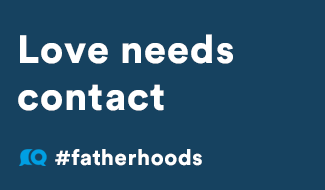When parents separate it is inevitable there will be occasions where mums and dads will disagree about parenting styles and the way that either of them cares for the children. However, it is important to keep this in perspective and keep in mind that there will be diverse styles of parenting (unless you believe the children are at risk of harm). If there is an issue it should be approached in a non-confrontational way and not in the children’s presence in order to have a minimal impact on them.
If your concerns are of a serious nature such as suspected abuse in any form, whether physical, emotional or neglect, it is essential that you act quickly in gaining help.
The first step you can take is to talk to the other parent, as communication is key in co-parenting when there are two different households. If you have concerns such your child’s hygiene, dietary issues and/or lack of routine, these could be an indication the other parent is not managing adequately and they may need a wider support network around them or assistance and advice from professionals. It could be that if they have never looked after the children by themselves prior to the separation they may benefit from some third party support such as attending a parenting course.
If it is difficult to discuss such issues with your ex partner, perhaps a neutral family member or a mutual friend could be there to support such a conversation, to ensure it remains focused on the children and isn’t seen as a personal attack.
However, it can often be easier to have this conversation with a completely impartial person such as a mediator or a family therapist. They can act as an independent neutral third party that can help you talk through the issues and try to reach an agreement with the other parent.
It may be wise to set up a contact book between you and the other parent so that you can continue to raise any concerns in a non-confrontational way. Producing a Parenting Plan can also ensure that your children’s practical day-to-day needs are being met and not missed by either party. The plans can include who is responsible for taking them to the doctors, dentist and for vaccinations. It can even include expectations for meals and set bed times, so that the children can expect the same routines and rules in each household. There are several tools online to help create a plan, including on the CAFCASS website. Having a Parenting Plan which can be referred to can avoid any future conflict over arrangements as it clearly sets out the agreement reached.
Safeguarding Concerns
If your concerns are of a serious nature such as suspected abuse in any form, whether physical, emotional or neglect, it is essential that you act quickly in gaining help.
In an emergency, you should contact the police. You can approach your GP for any troubling concerns about a child, even if that concern is about the child’s care with the other parent and they will be able to advise and refer to you other agencies such as social workers depending on the circumstances.
It would also be helpful to speak to the children’s school or nursery to see if they have noticed any changes in behaviour and/ or presentation. Each school will have a Designated Safeguarding Lead and will have received specialist training, so they can talk to you about your concerns. If they feel it is necessary, they have access to a number of services and can ensure the right help and support for your children.
If you believe your children have been or are likely to be at serious risk from their time with the other parent, it may be that time spent with the other parent needs to stop until any serious concerns have been properly investigated and advice from professionals received and followed. Depending on the situation it may be possible to arrange some supervised contact at a contact centre whilst matters are ongoing.
Asking the Court for help
If you are unable to resolve the issues with the other parent, you may wish to ask the court to look at the circumstances and make a decision in the best interests of your children. This could include who spends time with your child, where your child lives and the amount of time a child spends with each parent. Any decision a court will make will have to be applied to criteria known as the welfare checklist under s1(3) Children Act 1989. This will consider;
- The ascertainable wishes and feelings of the child concerned
- The child’s physical, emotional and educational needs
- The likely effect on the child if circumstances changed as a result of the court’s decision
- The child’s age, sex, backgrounds and any other characteristics which will be relevant to the court’s decision
- Any harm the child has suffered or maybe at risk of suffering
- Capability of the child’s parents (or any other person the courts find relevant) at meeting the child’s needs
- The powers available to the court in the given proceedings
The court may ask CAFCASS to meet you, the other parent and your children and produce a detailed report with recommendations to provide the court with a better understanding of the situation, whether the children’s needs are being met and how they feel about contact.
Court Orders
In all circumstances, if there is a court order already in place setting out how both parents spend time with the children, if you have concerns about how they’re being looked after, you will need to return the matter to court and seek for the order to be varied. In doing so, you can bring to the court’s attention any concerns you have about the children.
If it is a serious concern and the child is in risk of immediate danger Children’s Services or the NSPCC may do this themselves to protect the child. If you are concerned that a court order needs to be stopped or varied in any way you can seek some initial advice from a solicitor.
Posted on July 16, 2018
















